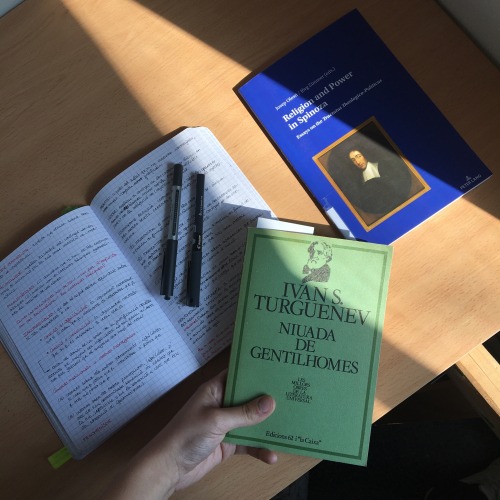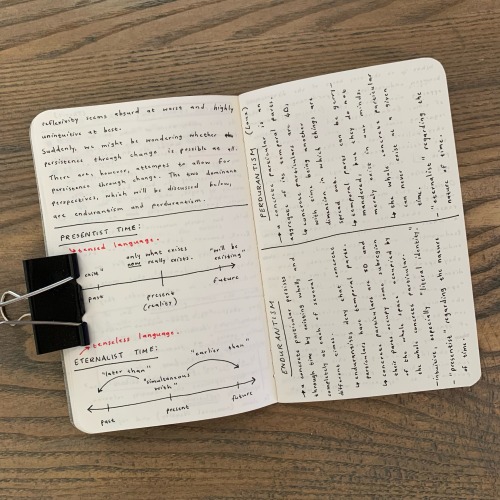Readings: Essays & Articles
readings: essays & articles
reassuring ghosts and haunted houses
fish recorded singing dawn chorus on reefs just like birds
what people around the world dream about
poet and philosopher david whyte on anger, forgiveness, and what maturity really means
oranges are orange, salmon are salmon
how memories persist where bodies and even brains do not
the avant-garde musical legacy of the moomins
the weight of our living: on hope, fire escapes, and visible desperation
disturbed minds and disruptive bodies
what is better ー a happy life or a meaningful one?
after my dad died, i started sending him emails. months later, someone wrote me back
on the igbo art of storytelling
what the caves are trying to tell us
promethean beasts — how animal uses of fire help illuminate human pyrocognition
the art of loving and losing female friends
on memorizing poetry
the ecological imagination of hayao miyazaki
reading in the age of constant distraction
holly warburton illustrates tender moments of love and light
romancing the fig: what one fruit can tell us about love, life and human civilization
mystery and birds: 5 ways to practice poetry
can a plant remember? this one seems to — here's the evidence
why female cannibals frighten and fascinate
when you give a tree an email adress
fear not — horror movies build community and emotional resilience
More Posts from Cantbreak-thecycle and Others
Best language learning tips & masterlists from other bloggers I’ve come across
(these posts are not my own!)
THE HOLY GRAIL of language learning (-> seriously tho, this is the BEST thing I’ve ever come across)
Tips:
Some language learning exercises and tips
20 Favorite Language Learning Tips
what should you be reading to maximize your language learning?
tips for learning a language (things i wish i knew before i started)
language learning and langblr tips
Tips on how to read in your target language for longer periods of time
Tips and inspiration from Fluent in 3 months by Benny Lewis
Tips for learning a sign language
Tips for relearning your second first language
How to:
how to self teach a new language
learning a language: how to
learning languages and how to make it fun
how to study languages
how to practice speaking in a foreign language
how to learn a language when you don’t know where to start
how to make a schedule for language learning
How to keep track of learning more than one language at the same time
Masterposts:
Language Study Master Post
Swedish Resources Masterpost
French Resouces Masterpost
Italian Resources Masterpost
Resource List for Learning German
Challenges:
Language-Sanctuary Langblr Challenge
language learning checkerboard challenge
Word lists:
2+ months of language learning prompts
list of words you need to know in your target language, in 3 levels
Other stuff:
bullet journal dedicated to language learning
over 400 language related youtube channels in 50+ languages
TED talks about language (learning)
Learning the Alien Languages of Star Trek
.
Feel free to reblog and add your own lists / masterlists!
words to use instead of ______
"Very"
Mild: clearly, decidedly, distinctly, markedly, considerably, notably, largely, recognizably, especially, indubitably Moderate: especially, surprisingly, substantially, uncommonly, chiefly, incredibly, obviously, unmistakably, considerably, awfully, wonderfully, particularly Bold: profusely, unequivocally, strikingly, astonishingly, exceedingly, absolutely, exceptionally, extremely, unquestionably, vastly, incontestably
"A Lot" (time)
Mild: often, oftentimes, sometime Moderate: frequently, usually, various, generally Bold: regularly, recurrent, persistent
"A Lot" (size)
Mild: many, much, several Moderate: numerous, bountiful, considerable Bold: multitude, profuse, vast
"Big"
Mild: sizable, ample, large, considerable, great, above average, important Moderate: ponderous, significant, crucial, vast, copious, magnificent, substantial Bold: enormous, immense, colossal, extensive, endless, paramount, boundless, prodigious, imposing, gigantic, voluminous, limitless, essential
"Small"
Mild: slight, limited, trivial, minor, light, puny, superficial, undersized, dinky, negligible, faint Moderate: scant, petite, inconsiderable, microscopic, dwarf, unsubstantial, minimum, miniature, tiny Bold: insignificant, minute, meager, infinitesimal, ineffectual, undetectable, inconsequential
"Good"
Mild: acceptable, favorable, agreeable, pleasing, satisfactory, satisfying, super, able, relevant, accomplished, efficient, reliable, ample, useful, profitable, adequate, adept Moderate: great, honorable, admirable, commendable, sound, splendid, superb, valuable, wonderful, worthy, clever, proficient, qualified, apt, skillful, thorough, wholesome Bold: excellent, exceptional, gratifying, marvelous, reputable, stupendous, superior, exemplary, virtuous, expert, solid, advantageous, flawless, extensive, perfect
"Bad"
Mild: cheap, dissatisfactory, faculty, off, mean, wrong, unpleasant, unwell, low, grim, sour, regretful Moderate: careless, defective, inferior, imperfect, deficient, rough, ill-suited, inadequate, unsatisfactory, delinquent, sinful, unruly, wicked, rancid, grave, harsh, terrible, downcast Bold: awful, unacceptable, corrupt, dreadful, putrid, erroneous, detrimental, ruinous, vile, villainous, diseased, adverse, evil
more words to use instead other words to use instead even more words to use instead
Tips for starting a studyblr, then ? Thanks!
I'm glad you asked! Here is a revival of my long ass post heheh
If you haven't already, my first tips is to make an account for your studyblr separate from any other blogs you run.
In terms of posting, I would always recommend posting anything with pictures. They don't have to be great quality or well-edited, start with anything your comfortable with; I find that posts with pics catch people attention better than simple textposts. I you feel like you want to get into editing, start playing around with some editing apps or drawing tools. Another great way to start posting is by taking on a studyblr challenge like the 100 days of productivity or the 30 days of productivity. A short introduction post is also a good idea so that other studyblrs can get an idea of your area of study, age, interests, etc.
When it comes to getting some traffic on your posts, tracking/tracked tags are a great tool to use. In case you haven't heard of them, these are certain tags that are regularly checked by their creators who will boost the posts that have used the tag. My tracking tag is #heydilli and I'll list a couple of others’ tags at the end of this post.
On a similar note, it's really helpful to follow and keep up with other studyblrs. This will help you get ideas for posts and also keep you in the loop about useful resources, new challenges, etc. Some of my fav studyblrs are listed below, along with their tracking tags if they use any:
@myhoneststudyblr (tracking #myhoneststudyblr) @ckmstudies @elysianania @elinordinary @museeofmoon (tracking #heyzainab) @notes-by-saher (tracking #heysaher) @frenchiepal @gushuwa @tranquilstudy (tracking #hiyatranquil) @acaemis @peachblossomstudy (tracking #heypeachblossom on hiatus atm) @rylie-studies (tracking #lookrylie) @rabbitstudy (tracking #heysantiago)
(sorry for the tag y'all but love you!)
So that's about all I can think about for the moment, so hope that helps. Good luck, hope that helped!
xx dilli ❤️



8/26/22- first week back on campus!!
i have the same professor in two different classes, so i'm seeing her every day and i'm honestly afraid i'll submit work for the wrong class bc they just blend together into a mega-class in my brain

A very tiresome academic read, and a book I keep by my side for when I can't take it anymore.
AP Psychology notes + Resources and stuff
notes + flashcards that I used 2 study (not all my resources, found online)
Notes
Summary of every unit (16 pages)
A longer summary of every unit (53 pages)
Knowt AP Psych Guide
Doc for Notes
Unit 1 Notes - Intro to Psychology
Unit 2 Notes - Biological Psychology
Consciousness/Drugs Notes
Unit 3 Notes - Sensation/Perception
Unit 4 Notes - Learning
Unit 5 Notes - Cognitive
Intelligence Notes
Unit 6 - Developmental Psychology
Unit 7 - Motivation/Emotion/Stress
Personality Notes
Unit 8 - Disorders
Clinical Treatment Notes
Unit 9 - Social Psychology Notes
Flashcards
Quizlets
Important People
Domains of Psychology
Terms
Experiments
Knowt
AP Psychology Ultimate Guide
AMSCO AP Psych Chapters
Ch. 1 - Intro to Psychology
Ch. 2 - Research Methods
Ch. 3 - Statistics
Ch. 4 - Understanding the Brain: Its Structures and Functions
Ch. 5 - Neurons, Neural Communication, and Behavioral Genetics
Ch. 7 - Perception
Ch. 13 - Motivation
Ch. 15 - Infancy and Childhood
Ch. 16 - Adolescence and Adulthood
Ch. 17 - Personality Theories, Approaches, and Assessment
Ch. 20 + 21 - Abnormal Behavior
Ch. 22 + 23 - Treatment of Abnormal Behavior
Ch. 24 + 25 - Social Psychology
Websites
Fiveable Study Guides for each unit
Youtube - Tim Steadman
Youtube - The School of Ireland
Youtube - Crash Course Playlist - Psychology Playlist
Youtube - Mandy Rice
Youtube - College Board - AP Psychology Playlist
Youtube - Social Science Simplified
AP Psychology Reddit
Other Tumblr blogs with more resources!
@ap-psych-ology
@nuroscience
hii you posted you are relearning latin, just from school book notes or are you also using other sources?
hi i use a mix of things! i use my notes and textbooks from school a lot, but i also use free online resources and try to read books in latin too

textbooks:
cambridge latin course books i-v (clc has free online resources if you can't buy them, here and here)
online resources / courses:
openlearn: getting started on classical latin
openlearn: continuing classical latin
openlearn: discovering ancient greek and latin
openlearn: introducing classical latin (i only use this one for pronunciation reminders)
national archives: medieval latin
misc:
list of modern books with latin translations

there are probably lots of other ways to learn it and other free resources, but this is what i use. hope this helps!

-
 miiimi liked this · 5 days ago
miiimi liked this · 5 days ago -
 wutheringhestia liked this · 5 days ago
wutheringhestia liked this · 5 days ago -
 daggersoliloquy reblogged this · 5 days ago
daggersoliloquy reblogged this · 5 days ago -
 moonfaeshay liked this · 5 days ago
moonfaeshay liked this · 5 days ago -
 scriptscraps liked this · 5 days ago
scriptscraps liked this · 5 days ago -
 studiousstoner liked this · 5 days ago
studiousstoner liked this · 5 days ago -
 bitterolivess liked this · 5 days ago
bitterolivess liked this · 5 days ago -
 decadentbailiffdreamerclod liked this · 6 days ago
decadentbailiffdreamerclod liked this · 6 days ago -
 sweaters-on-a-rainy-day reblogged this · 6 days ago
sweaters-on-a-rainy-day reblogged this · 6 days ago -
 fabulesbian liked this · 6 days ago
fabulesbian liked this · 6 days ago -
 lateinternet liked this · 6 days ago
lateinternet liked this · 6 days ago -
 youraveragestreetlamp liked this · 6 days ago
youraveragestreetlamp liked this · 6 days ago -
 edenscherrywine liked this · 6 days ago
edenscherrywine liked this · 6 days ago -
 way-too-indecisive reblogged this · 6 days ago
way-too-indecisive reblogged this · 6 days ago -
 way-too-indecisive liked this · 6 days ago
way-too-indecisive liked this · 6 days ago -
 shy-li liked this · 6 days ago
shy-li liked this · 6 days ago -
 toddtakefive reblogged this · 6 days ago
toddtakefive reblogged this · 6 days ago -
 toddtakefive liked this · 6 days ago
toddtakefive liked this · 6 days ago -
 snuffragdoll reblogged this · 6 days ago
snuffragdoll reblogged this · 6 days ago -
 delinquent-pigeons liked this · 6 days ago
delinquent-pigeons liked this · 6 days ago -
 vnuszn liked this · 6 days ago
vnuszn liked this · 6 days ago -
 misu-misou liked this · 6 days ago
misu-misou liked this · 6 days ago -
 cutiethecupcake liked this · 6 days ago
cutiethecupcake liked this · 6 days ago -
 lovevellichor reblogged this · 6 days ago
lovevellichor reblogged this · 6 days ago -
 starry-whispers liked this · 6 days ago
starry-whispers liked this · 6 days ago -
 inthesuitcase liked this · 1 week ago
inthesuitcase liked this · 1 week ago -
 overlymelancholic reblogged this · 1 week ago
overlymelancholic reblogged this · 1 week ago -
 vivienaaren reblogged this · 1 week ago
vivienaaren reblogged this · 1 week ago -
 crescentinence reblogged this · 1 week ago
crescentinence reblogged this · 1 week ago -
 nutmegnonsense reblogged this · 1 week ago
nutmegnonsense reblogged this · 1 week ago -
 nutmegnonsense liked this · 1 week ago
nutmegnonsense liked this · 1 week ago -
 awillowwand liked this · 1 week ago
awillowwand liked this · 1 week ago -
 un-najla liked this · 1 week ago
un-najla liked this · 1 week ago -
 mothbiteclub liked this · 1 week ago
mothbiteclub liked this · 1 week ago -
 fromhafsa reblogged this · 1 week ago
fromhafsa reblogged this · 1 week ago -
 moonys-wilde-poets liked this · 1 week ago
moonys-wilde-poets liked this · 1 week ago -
 caspiridium liked this · 1 week ago
caspiridium liked this · 1 week ago -
 bejeweledatmidnight liked this · 1 week ago
bejeweledatmidnight liked this · 1 week ago -
 village-wizard liked this · 1 week ago
village-wizard liked this · 1 week ago -
 unsuccession liked this · 1 week ago
unsuccession liked this · 1 week ago -
 ara-m1nta liked this · 1 week ago
ara-m1nta liked this · 1 week ago -
 kairos-acacia liked this · 1 week ago
kairos-acacia liked this · 1 week ago -
 youngsamanda liked this · 1 week ago
youngsamanda liked this · 1 week ago -
 serenrdipity liked this · 1 week ago
serenrdipity liked this · 1 week ago -
 7awefulstreams liked this · 1 week ago
7awefulstreams liked this · 1 week ago -
 alice5167 liked this · 1 week ago
alice5167 liked this · 1 week ago -
 carmensapientia reblogged this · 1 week ago
carmensapientia reblogged this · 1 week ago -
 elainiisms liked this · 1 week ago
elainiisms liked this · 1 week ago







